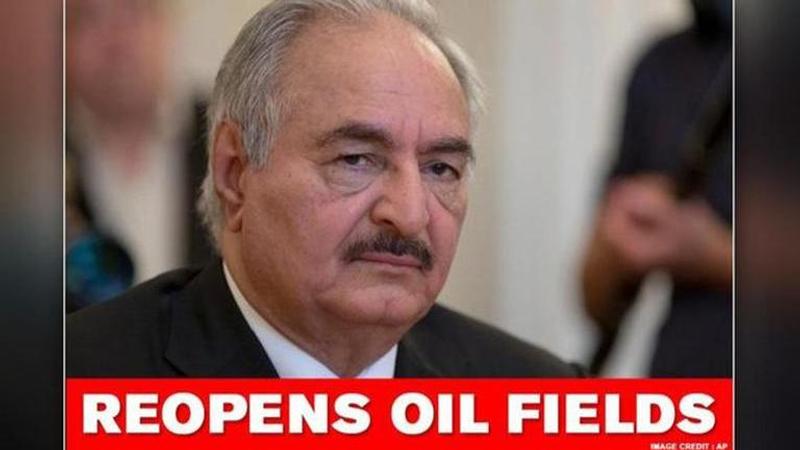Published 08:08 IST, September 14th 2020
Libyan commander Khalifa Hifter agrees to lift oil blockade amid ongoing conflict
Tribes loyal to Hifter have kept export terminals closed and also choked off all the major pipelines since the start of the year.

The United States embassy in Libya and the Libyan commander Khalifa Hifter have agreed to lift oil blockades by Saturday, September 12. This move could lead to a settlement between the country and its opposing sides. Tribes loyal to Hifter have kept export terminals closed and also choked off all the major pipelines since the start of the year with the objective of putting pressure on their rivals in Tripoli, which are backed by the United Nations.
Oil blockade to be lifted
The US embassy statement said Hifter’s Libyan Arab Armed Forces conveyed to the US government “the personal commitment of General Hifter to allow the full reopening of the energy sector no later than Sept. 12”. However, reports by AP suggest that by Saturday evening it was not clear if the blockade was lifted. There had been no comments from LAAF after that. The US embassy said that it was encouraged by “an apparent sovereign Libyan agreement” to enable Libya’s National Oil Corporation to resume its “vital and apolitical work”. It added, “The US supports “a financial model that would constitute a credible guarantee that oil and gas revenues would be managed transparently and preserved for the benefit of the Libyan people. Credible safeguards will enable all Libyans to have confidence that revenues are not misappropriated”.
Back in the month of July, the Libyan Forces set conditions for the opening of oil blockades. Ahmed al-Mosmari, a spokesman for Hifter's forces, called for oil revenues to flow into a bank account in a foreign country with a “clear mechanism” to distribute funds fairly among Libya’s regions. Also, he demanded international guarantees that oil revenues would not be used to fund “terrorists and mercenaries”, hinting towards Syrians that Turkey brought in recent months to fight on the side of the Tripoli government. Al-Mosmari also called for an audit of Libya's central bank in Tripoli. This would help in reviewing the spending in the past years. Libya has been in the midst of a violent civil war since 2014 and as a result, has been essentially bifurcated into two autonomous regions, military commander Khalifa Hifter who is the commander-in-chief of the Libyan National Army rules the east and the south backed by the United Arab Emirates, while an UN-supported government based in Tripoli controls the west.
(Image Credits: AP)
Updated 08:08 IST, September 14th 2020




